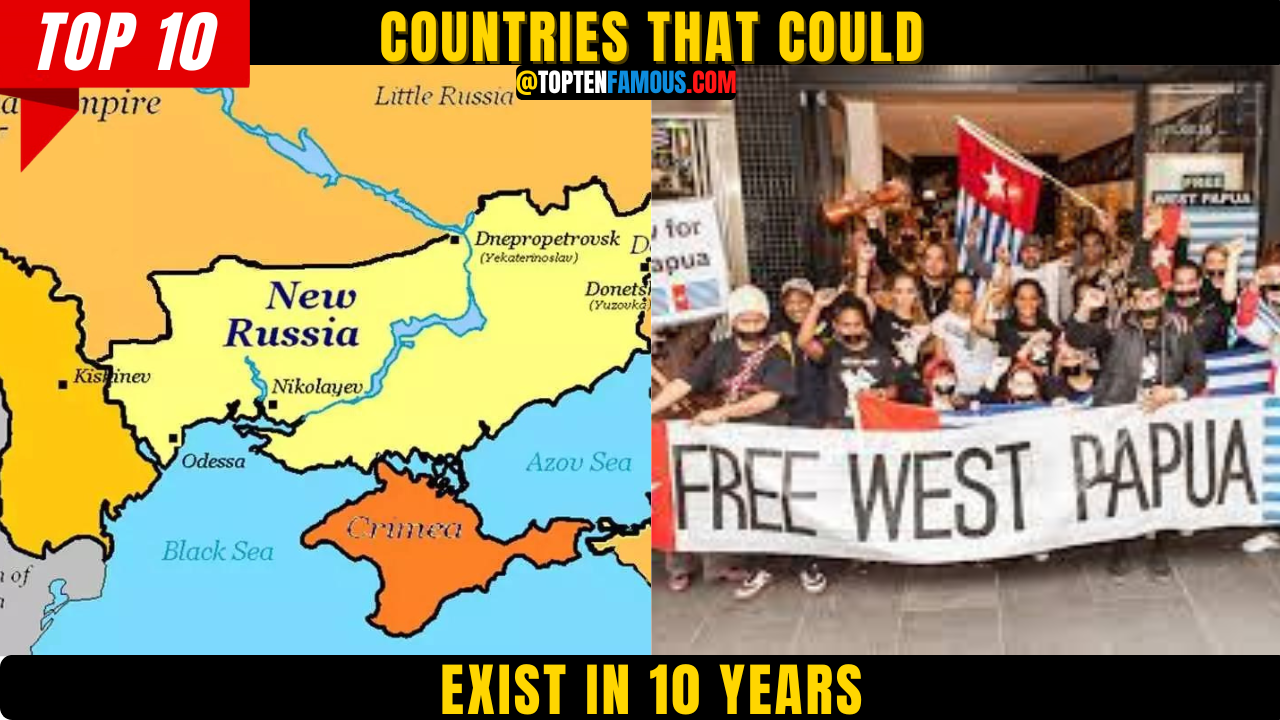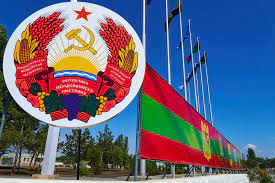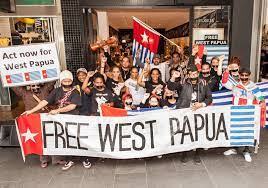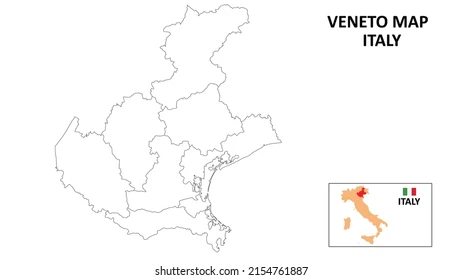Politics
10 Countries That Could Exist In 10 Years

Searching for a calm, never evolving position? In late history, excepting structural changes in worldwide legislative issues, globally perceived states seldom come into (or out of) presence and in this way the world guide has remained moderately unaltered. While map making is apparently the most reliable (read: exhausting) occupation lately, maps aren’t that peaceful 100% of the time.
The two World Wars, decolonization, and the fall of the Soviet Union are instances of occasions that have modified world legislative issues, and at that point, kept map makers scrambling to stay aware of steadily moving lines. We give off an impression of being seeing two correspondingly significant (however more modest scaled) peculiarities – the restriction of Europe, and the ‘unthawing’ of states frozen in the consequence of the disintegration of the U.S.S.R.
With the extension of the European Union and the development of its organizations, countries inside part expresses that have clutched notable binds with their parent states are tracking down motivations to look for independence. These prizes incorporate maintenance of financial and political advantages of E.U. participation, while accomplishing more noteworthy power and, thusly, more control on inside issues like expenses, training, and limited government.
Post-Soviet frozen states have worked in a true outcast status since the mid 1990s, gaining little ground toward worldwide acknowledgment, getting just implied help from Russia. Anyway the statement of autonomy of Kosovo from Serbia in 2008 caused an unexpected change in Russian international strategy, filling in as guise for battle in Georgia that very year, and for the addition of Crimea in 2014, and the proceeded with Russian help of the disobedience in Ukraine as of now. Russia’s final plan stays hazy yet looks to bring about the climb of a few recently free states to the world stage possibly.
So here are 10 Countries That Could Exist In 10 Years!
Catalonia

Countries That Could Exist In 10 Years-Catalonia
Catalonia is a locale of Spain situated on the upper east shore of the Mediterranean Sea lining France and Andorra. It was the primary district of what is presently Spain to go under Roman rule, and has appreciated fluctuating levels of independence under progressive rulers since the Middle Ages. Under forty years of the Franco autocracy in the twentieth hundred years, the Spanish government stifled Catalan language and culture. During this period, Catalan language media, alongside local occasions, were banned all together.
Since Spain’s change to a majority rules government during the 1970s-80s, public endeavors have been set up to revive Catalan culture remembering the necessity of all essential schooling for the locale to be conveyed in Catalan. A 2010 regulation to advance Catalan culture expected all cinemas to show something like half of motion pictures in Catalan, notwithstanding, it was in this manner repealed by the European Commission two years after the fact,
The Catalan freedom development has been simultaneous with Catalan social renewal endeavors. Catalan patriots have held the greater part in Catalan Parliament or have been essential for a decision alliance starting around 1980. Beginning around 2009, a few nearby non-restricting mandates on freedom have been held in Catalonia. In November of last year, Catalans held the latest of these mandates, with over 80% of citizens picking autonomy. The Spanish government has considered these mandates unlawful and don’t formally acknowledge the outcomes.
Flemish Republic

Countries That Could Exist In 10 Years-Flemish Republic
The Flemish freedom development follows its underlying foundations to the eighteenth century when Flanders was governed by Austria as a feature of the Southern Netherlands. Flanders was retained into free Belgium in the mid nineteenth hundred years however it was only after 2014, when the New Flemish Alliance turned into the biggest party in Belgium’s decision alliance, that a Flemish dissident party has controlled Belgian government.
Current Belgium is contained three managerial Regions; Dutch-talking larger part Flanders in the north, and French-talking larger part Wallonia in the south, and the Brussels-Capital Region which envelops Brussels. Dutch speakers contain most of Belgium’s general populace and the Flanders Region – home of the Flemish freedom development – is home to the urban areas of Antwerp, Bruges, and Ghent, with Brussels situated inside the Flemish Community yet enclaved in an authoritatively discrete Region.
Flanders contrasts etymologically and socially from Wallonia as well as inclines toward political traditionalism while the south is more liberal and communist. These elements, alongside social pride and positive energy, have pushed the Flemish autonomy development into standard conversation.
Transnistria

Countries That Could Exist In 10 Years-Transnistria
Transnistria possesses a bit of an area between the Dniester River in Moldova and the Ukrainian boundary. During the progression time of the Soviet Union, known as glasnost, the Moldovan S.S.R. taken on Moldovan as its true language. In the Transnistrian district of Moldova, ethnic Moldovans just contained 40% of the populace, with ethnic Russians and Ukrainians shaping the Majority. A favorable to Russian opposition shaped, pronouncing a free Transnistrian S.S.R. in 1990.
After the Soviet Union fell in 1992, a short conflict broke out over control of Transnistria, with Russian upheld Transnistrian powers ready to hold true command over the district from Moldova. From that point forward, Transnistria has worked as an unnoticed state inside Moldova with inferred Russian help, and has turned into a scandalous center for arms and illegal exploitation at times named a ‘Mafia state’. Following the Russian extension of Crimea, Transnistria presented a solicitation for addition to the Russian government which was in this way dismissed.
New Russia

Countries That Could Exist In 10 Years-New Russia
Previous Ukrainian President Viktor Yanukovich’s 2013 refusal to sign political affiliation and international alliances with the European Union ignited an insurgency that has prompted a the piecemeal breaking down of the Ukraine. Favorable to European dissenters held onto the legislative center, calmly right away, yet this reverted into ridiculous clash in Kiev, which spread to Ukraine’s southern and eastern districts.
Yanukovich was arraigned and escaped the country. Crimea in the south revolted with the backing of, and ensuing addition by, Russia. Disobedience broke out in Donetsk and Luhansk, two self-proclaimed republics in the east. The two hopeful states participated in confederation in May of 2014, proclaiming themselves as Novorossiya, or ‘New Russia’. This adds up to a nationwide conflict inside Ukraine, and battling among Ukrainian and radical powers go on for command an over the area of New Russia and its encompassing regions.
West Papua

Countries That Could Exist In 10 Years-West Papua
The western portion of the island of New Guinea was controlled by the Dutch from the 1600s through the 1960s. In 1969 regulatory authority was moved to the United Nations, then to Indonesia, who together directed a plebiscite on freedom for West Papua. In 1969, Indonesia named a chamber of roughly 1,000 seniors to decide for the 800,000 West Papuan occupants on the subject of freedom and, under revealed dangers of actual viciousness, the committee casted a ballot for association with Indonesia. The UN perceived the vote, notwithstanding much worldwide resistance, and West Papua was coordinated into the Indonesian government framework. From that point forward, a second rate guerrilla insurrection has been pursued against the Indonesian government and military.
In 1998, after the fall of Indonesian despot Suharto, Archbishop Desmond Tutu joined worldwide administrators in requiring the U.N. to return to the farce West Papuan plebiscite of 1969. Hitherto the U.N. has declined.
West Papua has earned conventional respect from individual Melanesian-larger part state Tuvalu. In 2014 unique renegade gatherings in West Papua officially joined to shape the United Liberation Front of West Papua, and the first “Free West Papua” crusade office opened in Australia. West Papua’s application for enrollment in the Melanesian Spearhead Group will be taken up at the administration meeting in the Solomon Islands in July 2015.
Must Read :10+ Interesting Facts About UAE
Somaliland

Countries That Could Exist In 10 Years-Somaliland
Based on appearances, Somaliland looks considerably more like a working state than its parent country of Somalia. Somaliland issues its own cash and travel papers, has its own financial framework, global air terminal, military, and government. Despite discontinuous reports of savage concealment of fights by police, Somaliland has even had six popularity based decisions, including the 2010 Presidental political race, the principal somewhat serene majority rule progress of force in the Horn of Africa’s new history. It has not encountered a dread assault starting around 2008, and has to a great extent recuperated from the Somali Civil War, which left the locale’s capital, Hargeisa, bombarded to ruins.
Be that as it may, this true State isn’t perceived as such by any unfamiliar administering body (beyond the City Council of Sheffield, U.K.). The significant contention against perceiving Somaliland for the overwhelming majority in the global local area has been that acknowledgment of a free Somaliland would additionally decimate Somalia’s endeavors at putting together a working state. This contention has persevered for over twenty years, with Somaliland advancing while Somalia keeps on wavering near the precarious edge of rebellion. It is inevitable before the issue becomes debatable.
Veneto

Countries That Could Exist In 10 Years-Veneto
Some in Venice imagine the city turning into a ‘European Singapore’, an effective financial motor of political security free of the inefficient regulatory wreck that encompasses them in Italy. They guarantee that unfortunate administration, defilement, even coordinated wrongdoing in the south has troubled the Veneto locale and that Venetians are done able to take care of everything for Rome’s awkwardness. There is verifiable priority for a Venetian state, as Venice filled in as an effectively free state for a considerable length of time until the eighteenth century when it was added by Austria and consequently to Italy sixty years after the fact.
Venetians have requested of the EU to hold an endorsed mandate on Veneto freedom however have gained little ground. Autonomous endeavors toward Veneto freedom have proceeded unabated. Most as of late, residents of Venice and its encompassing locale casted a ballot in April of 2014 in a web-based mandate on freedom with a staggering 89% for withdrawing from Italy. This plebiscite collected no proper acknowledgment and endeavors go on into 2015 with a mark drive for Veneto drove by the very association that put on the web-based mandate
Scotland

Countries That Could Exist In 10 Years-Scotland
Scotland worked as an autonomous realm from the Early Middle Ages (broadly battling off attacking powers on different occasions, see “Braveheart”) until the seventeenth Century when its ruler, James VI, was named King of England, bringing together the crowns of the two countries. After a century, Scotland went into a proper association with England shaping Great Britain.
A serene Scottish “home rule” banter started soon after the leftover outfitted protection from the association was crushed. This discussion went on through the finish of the twentieth century when a mandate on “decaying” the connection among Scotland and the UK won. This permitted Scotland to reconvene its parliament without precedent for almost 300 years and to control all “non-held” matters from Scotland, including nearby government, schooling, wellbeing, and farming.
Rather than mollifying the Scots, devolution has prodded calls for full Scottish autonomy from Great Britain. Scotland held a completely endorsed freedom mandate in September of 2014 with the no vote winning the day with 55% of the vote, however autonomy being the inclination of the city of Glasgow. Albeit the action was crushed, the autonomy development has not subsided with the First Minister of Scotland openly expressing in April 2015 that she can’t to preclude one more freedom mandate during the following parliament.
Abkhazi

Countries That Could Exist In 10 Years-Abkhazia
The area known as Abkhazia has been questioned for a really long time. Command over Abkhazia passed from the Roman Empire, to the Ottomans, to the Russians; with ethnic Abkhaz and Georgians losing and recapturing command over the area on numerous occasions. During Soviet rule, Abkhazia was given a level of self-rule, with it being named an independent republic inside the Georgian S.S.R.
After the separation of the Soviet Union, Abkhazia endeavored to isolate from the recently free Georgia, bringing about a drawn out military struggle and the loss of the Georgian armed force. Large number of ethnic Georgians were killed, and many thousands were effectively gotten rid of from Abkhazia in what was named by numerous an ethnic purifying. The contention left Abkhazia a true state without global acknowledgment until the Russian-Georgian clash of 2008, after which Russia officially perceived Abkhazia. This was trailed by formal acknowledgment of Abkhazia from Nicaragua, Venezuela, Nauru, and Vanuatu (Tuvalu perceived Abkhazia in 2011 yet withdrawn its acknowledgment in 2014). In 2014 Abkhazia consented to an arrangement with Russia coordinating its military with Russian powers, which many see as either a stage toward Russian help or as in Crimea, a stage toward extension.
South Ossetia

Countries That Could Exist In 10 Years-South Ossetia
Like Abkhazia, South Ossetia turned out to be important for the autonomous Georgian state after the separation of the Soviet Union. What’s more, as in Abkhazia, South Ossetians participated in a tactical clash with Georgian powers. Not at all like in Abkhazia, Georgia had the option to hold command over the majority of South Ossetia, compelling huge number of Ossetians to escape north to Russia. The contention finished with the foundation of a joint peacekeeping power comprised of Georgians, Ossetians, and Russians, yet the locale stayed under Georgian power.
The contention erupted again after the Rose Revolution in Georgia, most outstandingly as the impetus of the Russian-Georgian clash of 2008. During this contention, the essentially Russian powers drove the Georgian military out of the district. This was trailed by formal acknowledgment of South Ossetian freedom by Russia, and consequently by the very countries that perceived Abkhazia. Recently South Ossetia consented to a combination arrangement with Russia like the one Abkhazia endorsed in 2014.
Must Read :Top 10 UNESCO World Heritage Sites list by Country


